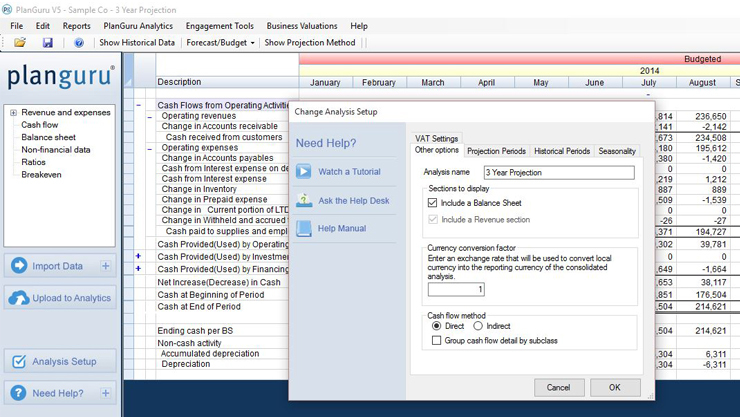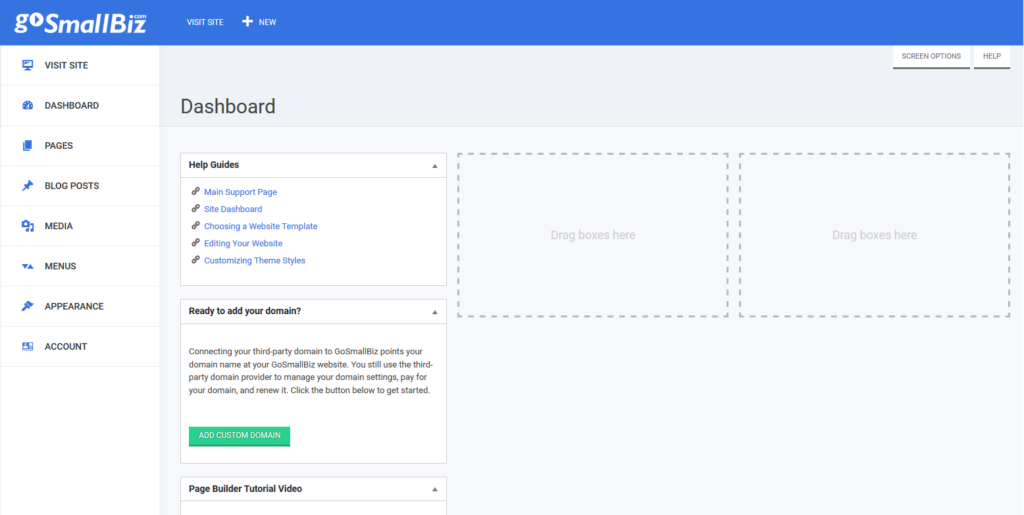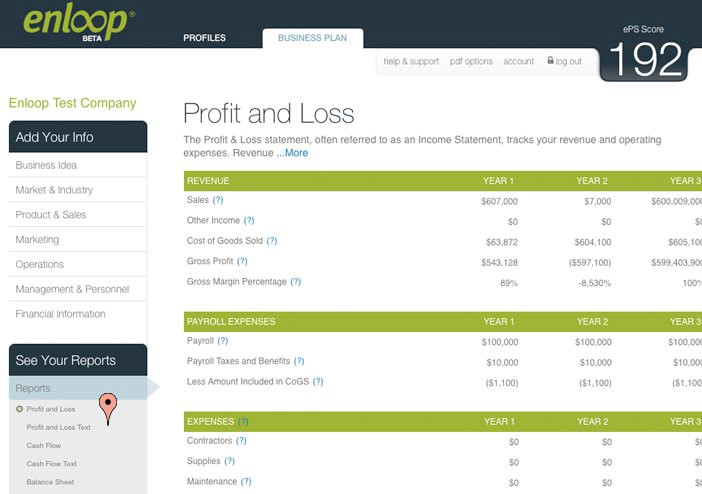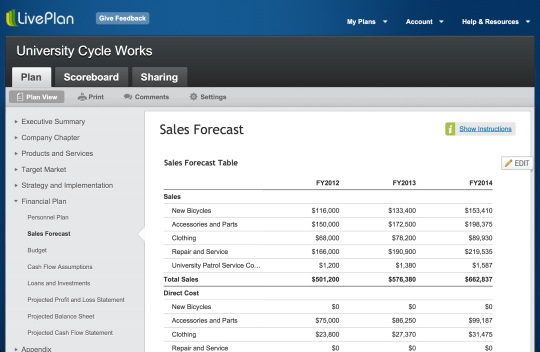In today’s growing business world, the best factor is to convert dream plans into successful businesses worldwide. However, this comes with a price. All plans don’t become a reality. This demotivates many upcoming entrepreneurs or freelancers who are trying their best to convert the plans into their start-ups. Small businesses with limited budgets and time constraints are mostly on the downside. Business plan software and tools add a little push to make such plans come alive.
It aims at making plans come true by increasing the capital finances. As a result, it shows its growing effects on the expanding business. Business plan software tools allow critical evaluation of the strengths and weaknesses of the business. This helps the product and/or services of that particular business have an impact on the competitive market.
Business Plan Software and Tools to Aid small businesses in 2020
Many of us tend to come up with several business ideas while being at leisure. Ever wondered how many of those actually come to reality? Not many do. The most probable reason here being the labour-intensive and constructive business plans that one fails to come up with. The right people, with a clear vision, will be able to attract the right people and resources to implement the plans to create a coherent business plan.
A business plan provides details on how an entrepreneur will get prospective clients and customers. Alongside this, it gives insight into how the raising of the early-stage venture capital works and who will be running the business. In other words, business plans help the new entrepreneurs to open up about themselves, their strengths and asking for funding in return for the ideas given.
Business plans are in the form of written agreements are written to get funding in the form of bank loans or VC funding that helps to lift the new business off the ground. Keeping a business plan helps to keep an eye on the maturity of the business over time. It is the easiest way to measure the success of the business in a given span of time.
However, the entrepreneur is not the most suitable to become a business document management expert. It becomes challenging to explain the product’s or service’s unique selling points and analyze the competitors; strengths and weaknesses at the same time. On top of that, to provide a backup explanation for the need for funding to make the business successful is a tough job. Lack of expertise brings in the business plan software and tools aimed at meeting these needs.
Structure of a Business Plan
Even the smallest of planning requires financial support. A business plan will portray the amount of funding the business will need. Hence, it is important to keep financial reports of profits and losses, balance sheets, monthly as well as yearly projections.
Business plan software tools help the entrepreneur to keep track of the numbers, the region included, and the company size concerning the competitive business out there. This allows the entrepreneurs to back up their assertions when confronting the investors and stakeholders.
A tax preparation software helps to provide data samples, explaining the information expected by the investors in each field.
No matter how much the business planning software is expertise in various fields, it still is not considered as an all-in-one tool for planning. A business plan software does plan attractively according to the customizations available. Setting the correct expectations from the tools will help the entrepreneur to get the best use out of the tool.
The business plan is considerably always work-in-progress. At times the software solutions might ask for relevant information which the entrepreneur was not aware of. The parts of the plan that needs further research must be marked beforehand. The software helps to keep those parts in draft mode to evaluate later on.
Despite the software tools assuring that the person is organized, it’s recommended for him or her to do background research on the summary of the work that has been done. This will help the person to be doubly sure of the progress in the work.
Criteria for choosing the following business plan software for small business are
- The amount of software features one tool is offering.
- Software tools covering different price points to suit the needs of small businesses.
- The ability of the software tools to be user-friendly and worth the price paid.
- The support provided to the customers by the developers of the software tools.
- Reviews from users of the software tools mentioned below.
Let’s dig in for further insight into the world of business plan software and tools, suited mainly for small businesses.
Best Business Plan Software Tools
1. PlanGuru
Starting with number 5, we have the PlanGuru, best known for financial planning and budgeting. Christian Wiegler founded PlanGuru in 2013. This business plan software has the strongest financial features, ranging from budgeting to forecasting. In the business planning space, its features include financial tools, forecasts, and calculations to build an analytical report for the company.
This tool provides video tutorials to explain software navigation as well as the business plan. Lastly, it exports those reports to Word, Excel, or Pdf. This flexible and comprehensive software has become famous among small businesses in no time.
The advantage of using this software that it has substantial library resources provides extensive tools for budgeting, forecasting, and reporting. It has desktop and cloud-based options available.

PlanGuru
However, the downfall of this business plan software is that it’s expensive, especially for additional users. Since it focuses on financial planning to be precise, it doesn’t provide a basic business plan writing template. As a result, it becomes difficult to use without prior knowledge.
Although this tool has no free trial period, it guarantees cashback after 30n days if it fails to meet the needs of the company. The paid plan starts at $99 per month per user. An addition of $29 gets added with every new user that enters the paid subscription.
2. Bizplan
At number 4 on the list, Bizplan is best suited for the presentation of the business plan. Wil Schroter founded BizPlan, and within five years, it rose to the success of $700 million. The visual appeal and functionality make the plan more attractive a memorable to the investors as well as to the team in general.
This business planning software breaks down the whole plan into workable components. Further, it provides expert guidance at every step, with visuals summing up the presentation beautifully.

Bizplan
It provides reports analyzed on a monthly, quarterly, or yearly basis. The progress tracker of this software allows the entrepreneur to know the percentage of the plan that is completed as well as the part that is underway. Video lessons are available for assisting the newbies in the world of business planning. Templates available complete the creation at ease.
This tool does not provide any free trial. As a result, the person is unable to know if the tool will suit the needs of his or her company. A skype call replaces a traditional phone call for customer supports. This might not be beneficial for many users. However, the option of live chat is pretty useful in this case.
3. GoSmallBiz
GoSmallBiz comes 3rd on this list. Founded by Fran Tarkenton in 1996, it has been in business for 23 years, serving over 400,000 users worldwide. This is best suited for non-profits and provides business-specific templates. As a result, this generates the exact number of documents required for the business.
The step-by-step wizard allows creating a great business plan. The financial projection allows the creation of financial statements without any complications. It provides features that cover creating a roadmap, working with legal and business forms, website build-up, and so on.

GoSmallBiz
This tool consists of extensive online library resources and unlimited business consultation and multiple business tools in one software. The business assessment and website consultation analysis is available on this tool. Templates specific to a business type, emphasizing financial statements and projections cater to the needs of the user.
With no free trials, this tool guarantees 30 days of payback to unsatisfied users. The paid plan starts at a comparatively affordable price of $39 per user per month.
4. Enloop
As we draw closer to the first choice, beating others in the list is Enloop on number 2. Cynthia K. McCahon founded this business plan software which aimed at increasing the success rate of small businesses. Enloop is a cloud-based business plan software, with over 300,000 users worldwide.
The tools Textsync and Autowrite of Enloop allows the generation of the basic business plan, followed by 10 of the main sections of the plan of work. The Financial Projections allow the user to know how business is performing from the financial viewpoint.

Enloop
The Forecast module allows the creation of the business plan based on two different modules. It might be a balance sheet forecast, profit or loss forecast, or a cash flow forecast. One drawback of this tool is that customer support can be reached only through an online form. This might not be a feasible option in most cases.
The free tier begins with a single user and one project, consisting of no images, simple text, and possibly no advanced features. The detailed paid plan comes for $19.95 per month. The performance plan comes at $39.95 per month.
5. LivePlan
Topping the list, at number one, Tim Berry founded LivePlan tops the list for a good number of reasons. This tool has an enriched collection of cloud-based tools, an attractive interface providing a step-by-step approach to the business plan, and other learning tools online.
The advanced financial services of this business planning software provide a calculative outcome of the business to be in five years. Now isn’t that a cool feature? The annual and monthly budgets made with the help of financial forecast includes all the important pieces of data into the projection.

LivePlan
The projections are comparable to the benchmarks set by the industry. This will help the user to see where the progress of his business lies in the competitive market. The visual presentation can be increased with the help of the charts and graphs tools available on this planning software. It offers 500 Templates that make this software top the list.
This tool includes third-party integrations as well. For evaluation purposes, no free trial is available. The paid versions come at an annual plan of $15 a month for 12 months. The plan of six months is $16 per month, whereas the other is $20 per month as you progress with this software. The billing of the last option is available once every month.
Concluding
Why consider a business plan software over hiring another company to do the expertise work? This is because the expertise manual labour charges more than any of the business planning tools out there. With hundreds of options and pricing plans to choose from, this limitation at this is bound to hinder the progress of business planning.
With entrepreneurs starting their business, financial constraints tend to prevent the success of the business. It is therefore recommended that the small businesses opt for the business plan software’s out there.
This article has given an insight into the most wanted business management software tools that have been in the market for quite some time. All one needs to do is make the right choice based on their funding, and others need to start up the business of their dreams.
LivePlan being the all-rounder of this article, stands out the most. However, the other mentioned software tools are no less. The choices made will surely be a game-changer. Don’t let your dream business just be scribbled on note pads and dreams. Make it real with a little help of the business plan software and tools that suit the needs. I hope this article answers all your unanswered questions.

No Responses